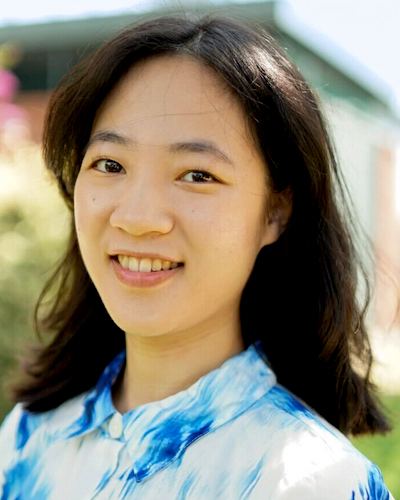Academic Differences I Found and How I Adapted

March 26, 2024
by Cindy
As a practicing occupational therapist from Taiwan, I was worried about stepping into a master’s degree program in the US. I did not know what to expect and how to prepare for the context transition. Therefore, I would like to share some academic differences I experienced. I also want to share some strategies and resources that helped me.
Difference:
- Interactive classes vs. lecture-oriented classes: The classes I attended were mostly lectures during my undergrad. Now, I find most PPMA classes are designed to let us learn by interacting with classmates and instructors. There are often in-class discussions or practices. I enjoyed those discussions, and I learned so much through them. However, I still find myself hesitating to raise my hand to answer questions or share my thoughts during group discussions.
- Critical analysis rather than one answer: The learning objectives behind the assignments are usually not just memorizing knowledge. Most assignments or questions in my classes do not ask for single answers. I spent more effort elaborating on how and why I chose this approach and got to the conclusion. Some assignments we had were appraising research articles, designing a treatment plan, and analyzing an occupational injustice situation.
- Reading materials: One thing I find both enjoyable and challenging is the amount of reading. Most classes have plenty of reading materials to support our learning. Sometimes, we are required to read through some materials before class to better participate in class. I love learning about the analysis of research outcomes and newly formed theories from those readings. However, it usually takes me plenty of time to read the articles.
- Different dynamics between instructors and students: It took me the most time to adjust to new ways of interacting and communicating with our instructors. I find the relationship between instructors and students less hierarchical. It makes asking the instructors questions or asking for support easier for me. Regardless, it is still a struggle for me to call my instructors by their first names.
- International perspectives: My classmates came from different regions and countries with various cultural backgrounds and clinical experiences. We have many opportunities to learn from others and share our perspectives. For example, in the occupational science class, we often have rich discussions about occupational injustice because of our various experiences. Despite the conversations being fruitful, we spend more effort clarifying with each other about their perspectives due to our diverse backgrounds.
- Language: For me, English is my second language. Even though I met the English proficiency criteria, fully understanding lectures, participating in small talks, reading multiple articles, writing assignments, and expressing our thoughts in group discussions do not come to me naturally. However, it pushed me to learn and use English. Our English level advanced really quickly in this all-English environment.
Strategies and Resources:
- Notice the differences: Being aware of the differences has helped me adjust more effectively. Talking to classmates and knowing what they were experiencing helped me better identify the differences I felt. It also showed me I was not navigating through this new context alone.
- Review syllabi: I realized too late that I should utilize course syllabi! The instructors will introduce the courses with the syllabi at the beginning of every course. The syllabi list the weekly content of the classes and assignments and their due dates. With this information, I could mark the assignment due dates, presentation dates, and exam dates on my calendar. I could plan the study schedule accordingly, which made me feel less stressed.
- Review assignment instructions and rubrics: I highly recommend reading through the assignment instructions and rubrics fully before you start doing the assignments. I can find what I should focus on in the assignment from the instructions. I can also know the details I need to accomplish to meet the assignment expectations based on the grading rubrics. Knowing the instructions and grading rubrics has saved me from spending extra time figuring out the assignments and worrying about what score I would get.
- Division and university resources: There are various academic resources in the Chan Division and USC. In our division, the Global Initiatives Office provides academic support hours, writing workshops, and other resources to support international students. There is also after-hours support held by the pedagogy residents in our division. In addition, there are more academic resources at USC. My classmates and I often access resources through the Kortschak Center website. They provide a semester calendar that contains every week of the semester, major school events, and holidays on one page. It helped me plan out my schedule more efficiently.
- Reach out to your instructors: Asking instructors questions was a bit challenging for me since this is not something I am used to. However, I learned that the instructors are happy to help and discuss with me. I feel less stressed about communicating my needs and queries with them. I have gone to my instructors to discuss the readings, ask for assignment expectation clarification, and even guidance for what elective courses to choose.
It takes time and effort to adapt to a new environment. Everyone may have diverse experiences influenced by various factors, such as culture, being in an advanced-level degree program, language, roles, etc. Despite the uniqueness of everyone’s journey, resources are plentiful to support people’s needs. What helped me the most was learning to communicate with my instructors, utilize the resources in the division and at school, and share the challenges I face with my classmates so we can support each other. Here at USC Chan, you don’t need to walk alone!
⋯
Next by tag Classes ⟩ International ⟩
⋯





